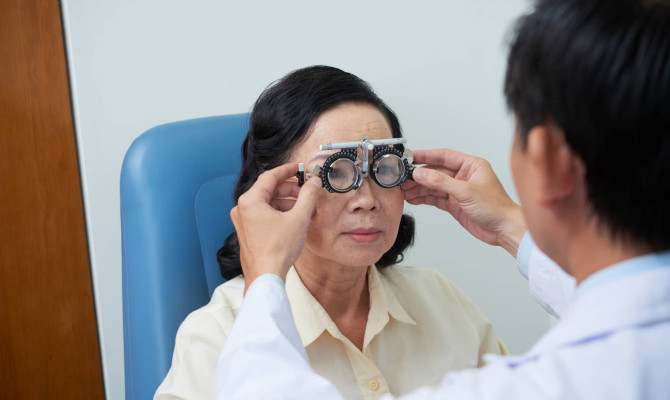Keytruda: Uses, Dosage, Side effects, and Precautions

- Keytruda
- 22 Aug 2023
Overview
What is Keytruda?
The Food and Drug Administration (FDA) first authorized Keytruda in 2014 to treat a number of cancer types. Keytruda (Pembrolizumab) is a kind of immunotherapy and not a chemotherapy.
Keytruda or Pembrolizumab is a drug administered through intravenous (IV) injection into the blood. Although individual doses vary, it is typically administered once every 3 to 6 weeks.
Immunotherapy is different from standard chemotherapy, which generally works by fighting the cancer cells directly.

How does Keytruda (pembrolizumab) work?
- A medicine called pembrolizumab 1Overview| Researched based study from Breastcancer.org is a monoclonal antibody. It is an immune checkpoint inhibitor.
- Immune checkpoint proteins are used as a shield by cancer cells to stop the immune system from finding and fighting them.
- Immune checkpoint inhibitors target these proteins to help the immune system detect and fight cancer cells. PD-1 is a checkpoint protein present on T cells that check the body for illness and infection. T cells stop killing when PD-1 attaches to PD-L1.
- Pembrolizumab can treat various malignancies that use PD-L1 to evade the immune system.
Uses
Uses of Keytruda
Keytruda has been given the go-ahead to treat different cancers. It’s currently offered as a reference (or “brand-name”) product. The FDA approved Keytruda for several different forms of cancer 2Uses| Researched based study from Cancerresearchuk.org as a result of this study, including:
- Skin tumors
- Head & neck malignancies
- Breast & Lung cancer
- Gastrointestinal cancer
- Cancer of reproductive organs
- Lymphomas
Skin tumors
Melanoma
- Melanoma is an uncommon kind of skin cancer that develops in the melanocytes, or color-producing cells, of the skin.
Cutaneous squamous cell carcinoma
- This more prevalent kind of skin cancer develops in the epidermis.
Merkel cell carcinoma
- It is a very uncommon kind of skin cancer that affects Merkel cells in the epidermis.
Malignancies of the head and neck
Carcinoma (Squamous cell type) of the head and neck
- This cancer develops on the interior of the mouth, nose, and throat.
Esophageal cancer
- This kind of cancer develops in the tube that joins the neck and the stomach, or esophagus.
Breast and lung cancers
Triple-negative breast cancer
- This type of breast cancer lacks estrogen, progesterone hormone receptors and the HER2 protein, which are chemical binding sites on breast cancer cells.
Non-small cell lung cancer
- It is the most common kind of lung cancer.
Gastrointestinal cancers
A few different forms of colorectal cancer:
Colorectal cancer
- It originates from the large intestine.
Gastric cancer
- The lining of the stomach may develop cancer, and this is known as gastric cancer.
Hepatocellular Carcinoma
- Patients who have previously had sorafenib treatment are given Keytruda to treat their advanced HCC.
Cancers of the reproductive system and bladder
Renal cell carcinoma
- The kidneys are the primary site of this malignancy.
Urothelial carcinoma
- This type of cancer often develops in the bladder is urothelial carcinoma.
Cervical cancer
- When The lowest portion of the uterus is affected, it is known as cervical cancer.
Endometrial carcinoma
- It is a type of cancer that develops in the endometrium, the uterine lining.
Lymphoma
Classical Hodgkin lymphoma
- It is an immune system cancer that arises when lymphocytes begin to proliferate uncontrollably.
Primary mediastinal large B-cell lymphoma
- It is an uncommon kind of non-Hodgkin lymphoma, an immune system disease that arises when the body produces abnormal B cells.
Others
- Microsatellite Instability-High Or Mismatch Repair Deficient Cancer.
- Microsatellite Instability-High Or Mismatch Repair Deficient Colorectal Cancer.
In certain circumstances, Keytruda may be taken as a stand-alone therapy. Nevertheless, depending on the kind and stage of cancer being treated, it is often used in conjunction with other cancer therapies
Side effects

Side effects of Keytruda
Although Keytruda (pembrolizumab) is often well tolerated, it may have adverse effects like any drugs.
Keytruda side effects might include both common and uncommon ones like these:
- Fatigue
- Vomiting
- Constipation
- Loss of appetite
- Muscle discomfort
- Rashes or itching
- Cough
- Breathing difficulties
- Fever
- Swollen lymph notes
- Excessive sweating
- Irregular heartbeat 3Side effects| Researched based study from Ucir.org
- Light colored stool
- Hair loss
- Low red blood cells
- Redness and blistering of skin
- Headache
- Stomach pain
- Swelling in the legs and arms
Side effects that are less common but could be serious
Adverse immune-related events (irAEs)
- The way that Keytruda works is by increasing the immune system, which might have adverse effects on organs. Inflammation of the lungs (pneumonitis), liver (hepatitis), intestines (colitis), skin (dermatitis), hormone-producing glands (endocrinopathies), and other organs may be among them.
Reactions to infusion
- During or soon after taking Keytruda, some patients may have allergic reactions or infusion-related events.
Thyroid conditions
- Keytruda may cause hypothyroidism (underactive thyroid) or hyperthyroidism (overactive thyroid) by affecting the thyroid gland.
Diabetes
- Keytruda has sometimes been linked to the onset of diabetes or the aggravation of pre-existing diabetes.
Kidney issues
- Nephritis, or inflammation of the kidneys, may result with Keytruda.
Serious skin disease
- A serious skin response like Stevens-Johnson syndrome or toxic epidermal necrolysis may sometimes be brought on by Keytruda.
Effects on the brain
- Rare incidences of nervous system illnesses, including encephalitis (inflammation of the brain) and Guillain-Barré syndrome, have been linked to keytruda.
Eye issues
- Keytruda may result in eye inflammation (uveitis) or other eye conditions.
While you are receiving Keytruda medication, your healthcare professional will continuously monitor you to identify and treat any possible side effects.
Dosage
Drug dosages and forms
Drug pembrolizumab is an active component of Keytruda. The inactive components 4Dosage| Researched based study from Fda.gov are histidine, sucrose, histidine monohydrochloride monohydrate, water for injection and Polysorbate-80.
- It comes in the form of a clear to slightly opalescent, colorless to pale yellow solution in a glass vial and has a single strength: 100 mg/4 mL.
- Each 1 mL of solution has 25 mg of pembrolizumab and it is formulated in: L-histidine (1.55 mg), sucrose (70 mg), polysorbate 80 (0.2 mg), and Water for Injection.
- Doctors administer Keytruda by intravenous (IV) infusion. The medication is slowly infused into your vein via an IV infusion that normally lasts for 30 minutes.
Dosage for adults
- Depending on the cancer type it is used to treat, Keytruda’s usual dose varies. Most likely, you’ll get 200 mg of keytruda in every three weeks or 400 mg of keytruda in every six weeks.
Pediatric dosage
- For children, the typical Keytruda dose is 2 mg of medication per kg of body weight.
What if I overtook or missed a dose?
- Call your doctor straight away if you forget, overdose or miss your appointment for a Keytruda infusion. You may reschedule your appointment with the assistance of the medical staff.
How long will I have to take this medication?
- It varies. Depending on how each person’s body reacts to the medication, Keytruda is administered for varying amounts of time. Keytruda is normally used up until either your cancer worsens or you experience annoying or serious side effects.
Storage
Storage conditions
Since Keytruda is a biologic medication, its storage guidelines must be followed to preserve its stability and effectiveness.
Here are some basic recommendations regarding Keytruda storage:
- Keytruda should be kept in the refrigerator between 2°C and 8°C (36°F and 46°F) in order to maintain its effectiveness.
- To keep Keytruda within the proper temperature range while traveling, it should be placed in a cooler with ice packs. You shouldn’t freeze it.
- Keytruda vials or containers need to be shielded from intense natural or artificial light.
- Keep it in its original container. This helps in protecting the drug from changes in temperature and light.
- Avoid jostling the Keytruda vial or container.
- Verify the expiry date on the Keytruda container at all times.
Precautions
Precautions and warnings
Here are some important precautions and warnings for Keytruda:
Immediately inform your doctor about
- Any of your medical illnesses, especially any immune system issues like Crohn’s disease, ulcerative colitis, or lupus, before getting Keytruda.
- You have had an organ transplant.
- Have had radiation therapy to your chest region.
- Have had or want to undergo an allogeneic stem cell transplant using donor stem cells.
During pregnancy
- Keytruda’s safety during pregnancy has not been determined, and it may cause harm to the unborn fetus. If you are pregnant you must talk and discuss with the doctor about the risks and advantages of Keytruda.
Vaccinations
- While using Keytruda, live vaccinations should be avoided since the medication may reduce their efficacy.
Organ transplant
- Keytruda shouldn’t be used by those who have had organ transplants since it raises the possibility of organ rejection.
Breastfeeding
- No research has been done on either people or animals to determine if it is safe to take Keytruda during breast-feeding.
- Nevertheless, it is advised against breastfeeding while using Keytruda due to the potentially dangerous adverse effects. Additionally, you shouldn’t breastfeed for at least 4 months after your last Keytruda dosage.
Intoxicants and Keytruda
- Alcohol and Keytruda don’t seem to interact at all. However, there are certain adverse effects of Keytruda and alcohol that are comparable, such as exhaustion (loss of energy), nausea, and diarrhea. During your Keytruda medication, these adverse effects might become worse if you consume too much alcohol.
Interactions
Keytruda Drug interactions
Anti-immunosuppressive drugs
- The effects of Keytruda may be offset by use of immunosuppressive drugs such corticosteroids like Prednisolone, Dexamethasone, Betamethasone, Sirolimus, Methotrexate, Mycophenolate mofetil, Immunosuppressive medications may decrease Keytruda’s effectiveness or raise the possibility of adverse immune-related events. 5Interactions| Researched based study from Cancer.gov
Additional cancer therapies
- Keytruda and certain chemotherapeutic medications like Paclitaxel, Doxorubicin, Cyclophosphamide, Fluorouracil, Cisplatin, Carboplatin or targeted treatments can interact. Given that certain combinations may result in higher toxicity or decreased efficacy. The use of Keytruda with other cancer therapies should be carefully examined.
Takeaway
Takeaway
Keytruda6Takeaway| Researched based study from Medlineplus.gov has shown long-lasting responses and increased overall survival rates in malignancies including melanoma, non-small cell lung cancer, and head and neck squamous cell carcinoma.
Pembrolizumab may be administered alone or alongside chemotherapy or targeted therapy medications, depending on the stage and type of cancer.
Numerous forms of cancer, including bladder cancer, skin cancer, and lung cancer, may be treated with pembrolizumab.
A new age of individualized and targeted cancer treatments has begun as a result of Keytruda’s success, which cleared the door for more immune checkpoint inhibitors and immunotherapies.
Any feedback on this article?
 This Articles content was accurate
This Articles content was accurate Very Informative Article
Very Informative Article I have a question or a comment
I have a question or a comment
 This article contains inaccurate content
This article contains inaccurate content This article was not helpful
This article was not helpful I have a question or a comment
I have a question or a comment
We appreciate your helpful feedback!
Checkout our social pages
References
-
Breastcancer.org
Keytruda | Overview
-
Cancer Research UK
Pembrolizumab (Keytruda) | Uses
-
Understanding Cancer Immunotherapy Research
Pembrolizumab (Keytruda) | Side effects
-
FOOD AND DRUG ADMINISTRATION
KEYTRUDA® (pembrolizumab) | Dosage
-
National Cancer Institute
Pembrolizumab | Interactions
-
Medline Plus
Pembrolizumab Injection | Takeaway





































